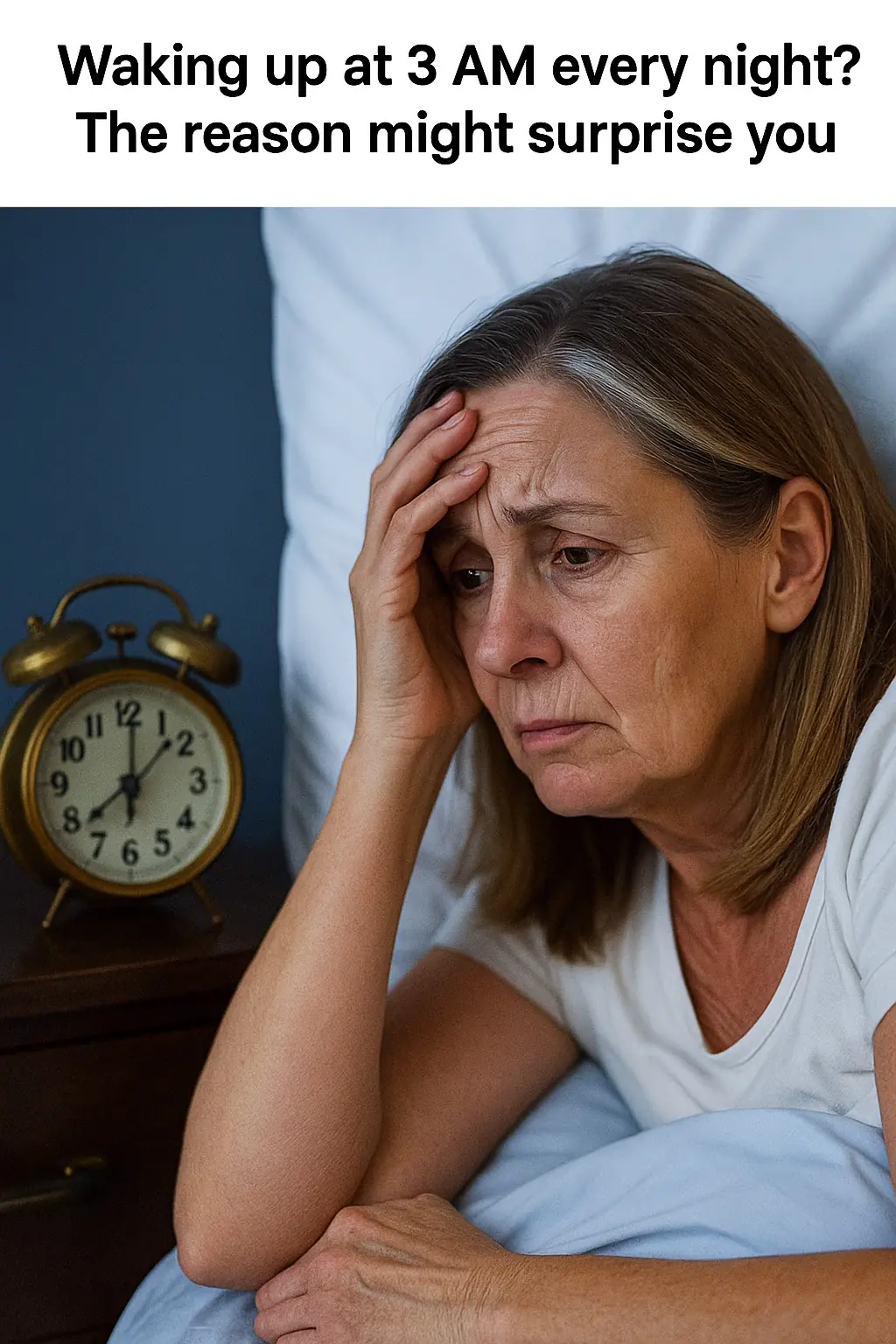Waking up at 3 AM every night can be a perplexing and frustrating experience. Many people find themselves staring at the ceiling, wondering why they can't seem to stay asleep through the night. While it may be tempting to dismiss these nocturnal awakenings as mere coincidence, there are often underlying reasons that can be addressed.
Understanding the root causes of these disruptions is crucial for improving sleep quality and overall well-being. From physiological factors to lifestyle choices, several elements can contribute to this common issue. In this article, we will explore the surprising reasons behind waking up at 3 AM and provide insights into how you can achieve a more restful night's sleep.
1. The Science Behind Sleep Cycles
Sleep is composed of several cycles, each lasting approximately 90 minutes, and includes stages of light sleep, deep sleep, and REM (Rapid Eye Movement) sleep. Typically, a person experiences four to six cycles per night. Waking up at 3 AM may coincide with the end of a sleep cycle, particularly if you went to bed around 10 PM. This natural transition between cycles can sometimes lead to brief awakenings.
Moreover, the body's circadian rhythm, which regulates the sleep-wake cycle, can also play a role. This internal clock is influenced by external cues like light and temperature, and disruptions can lead to waking up in the middle of the night. Understanding these cycles and rhythms is essential for identifying why you might be waking up at the same time each night.
2. The Role of Stress and Anxiety
Stress and anxiety are significant contributors to sleep disturbances. When the mind is preoccupied with worries, it can be challenging to achieve the deep, restorative sleep necessary for feeling refreshed. Stress activates the body's fight-or-flight response, increasing cortisol levels and making it difficult to stay asleep.
Studies have shown that individuals with high levels of stress are more likely to experience sleep fragmentation. Techniques such as mindfulness, meditation, and cognitive-behavioral therapy can help manage stress and improve sleep quality.
3. Hormonal Changes and Their Impact
Hormonal fluctuations can significantly impact sleep patterns. For example, women may experience sleep disturbances due to hormonal changes during menstruation, pregnancy, or menopause. The decrease in estrogen and progesterone during menopause can lead to hot flashes and night sweats, which can disrupt sleep.
Similarly, the production of melatonin, the hormone responsible for regulating sleep, decreases with age. This decline can lead to more frequent awakenings during the night. Understanding these hormonal influences can help in finding appropriate solutions to improve sleep.
4. The Influence of Diet and Nutrition
What you eat and drink can have a profound impact on your sleep. Consuming caffeine or nicotine close to bedtime can stimulate the nervous system, making it difficult to fall and stay asleep. Similarly, heavy or spicy meals can cause discomfort and disrupt sleep.
On the other hand, certain foods can promote better sleep. For instance, foods rich in tryptophan, magnesium, and melatonin, such as turkey, almonds, and cherries, can help improve sleep quality. Maintaining a balanced diet and being mindful of your eating habits can contribute to more restful sleep.
5. Environmental Factors That Disrupt Sleep
The sleep environment plays a crucial role in determining the quality of sleep. Factors such as noise, light, and temperature can all contribute to nighttime awakenings. A room that is too hot or too cold can make it difficult to maintain sleep, as the body needs to reach a certain temperature to enter deep sleep.
Additionally, exposure to artificial light, especially blue light from electronic devices, can interfere with melatonin production and disrupt the sleep-wake cycle. Creating a sleep-conducive environment by minimizing noise, blocking out light, and maintaining a comfortable temperature can help reduce nighttime awakenings.
6. The Connection Between Sleep and Mental Health
Sleep and mental health are closely linked, with each influencing the other. Conditions such as depression, anxiety, and bipolar disorder can lead to sleep disturbances, including waking up in the middle of the night. Conversely, poor sleep can exacerbate symptoms of mental health disorders.
Research indicates that individuals with insomnia are at a higher risk of developing depression. Addressing mental health issues through therapy, medication, or lifestyle changes can improve sleep quality and overall well-being.
7. How Technology Affects Your Sleep Patterns
The pervasive use of technology, particularly before bedtime, can significantly impact sleep patterns. The blue light emitted by screens can suppress melatonin production, making it harder to fall asleep. Additionally, engaging with stimulating content, such as social media or video games, can keep the mind active and delay sleep onset.
To mitigate these effects, it's recommended to establish a technology-free wind-down routine at least an hour before bed. This can help signal to your body that it's time to relax and prepare for sleep.
8. The Impact of Aging on Sleep
As people age, changes in sleep architecture can lead to more frequent awakenings. Older adults tend to spend less time in deep sleep and more time in lighter stages of sleep, making them more susceptible to disturbances.
Additionally, age-related health issues, such as arthritis or sleep apnea, can further disrupt sleep. Understanding these changes and addressing any underlying health conditions can help improve sleep quality in older adults.
9. Popular Hacks to Improve Sleep Quality
There are several strategies that can help improve sleep quality and reduce nighttime awakenings. Establishing a consistent sleep schedule by going to bed and waking up at the same time each day can help regulate your body's internal clock.
Practicing relaxation techniques, such as deep breathing or progressive muscle relaxation, can also promote better sleep. Additionally, creating a bedtime routine that includes calming activities, such as reading or taking a warm bath, can signal to your body that it's time to wind down.
10. When to Seek Professional Help
If you consistently wake up at 3 AM and find it difficult to return to sleep, it may be time to seek professional help. A healthcare provider can help identify any underlying sleep disorders, such as insomnia or sleep apnea, and recommend appropriate treatments.
In some cases, a sleep study may be necessary to monitor your sleep patterns and identify any disruptions. Seeking professional help can provide valuable insights and lead to effective solutions for improving sleep.
11. Lifestyle Changes for Better Sleep
Making certain lifestyle changes can have a significant impact on sleep quality. Regular physical activity can help you fall asleep faster and enjoy deeper sleep. However, it's important to avoid vigorous exercise close to bedtime, as it can be stimulating.
Limiting alcohol and caffeine intake, especially in the hours leading up to bedtime, can also improve sleep. Additionally, creating a relaxing bedtime routine and ensuring your sleep environment is conducive to rest can help promote better sleep.







































